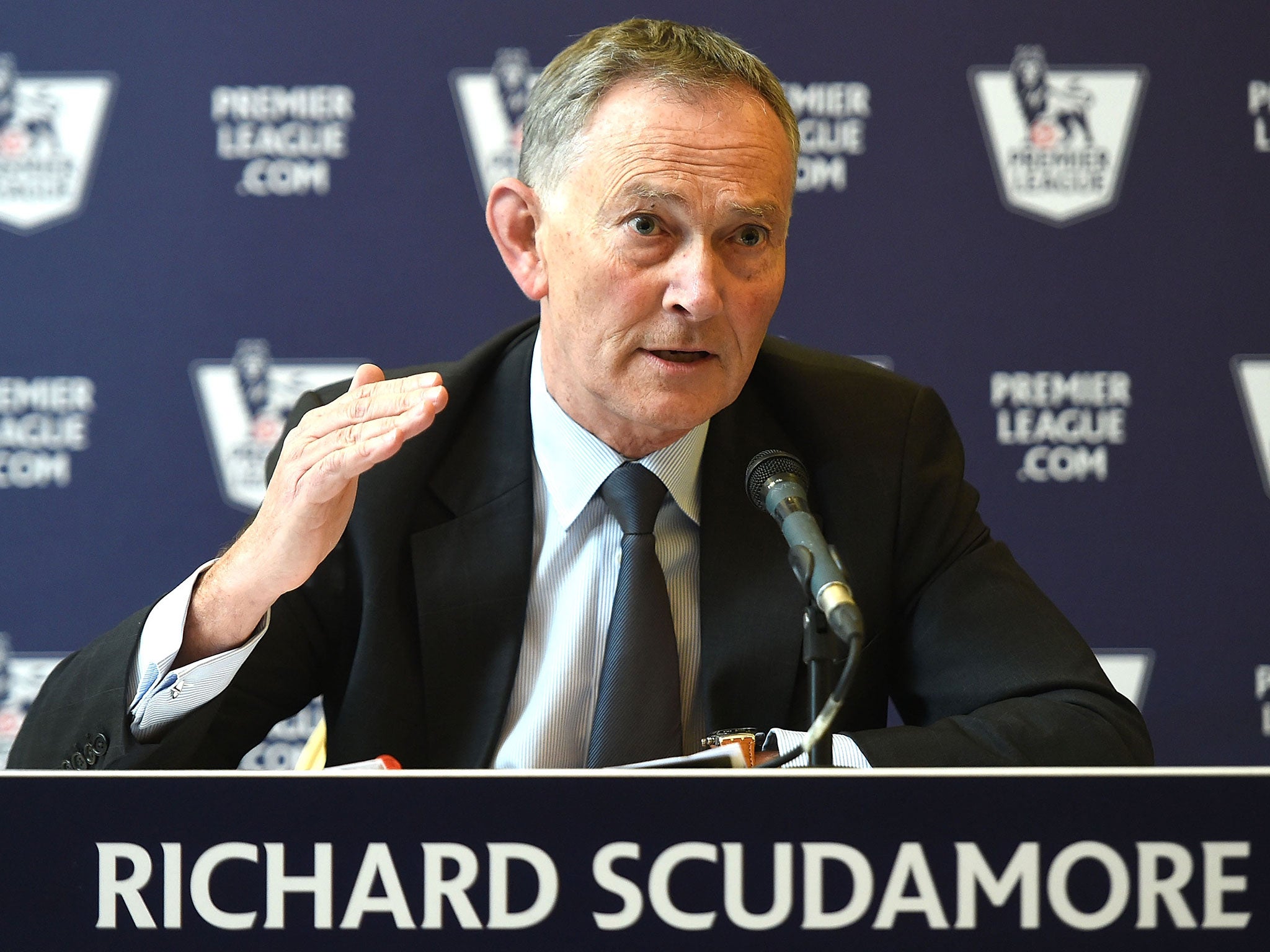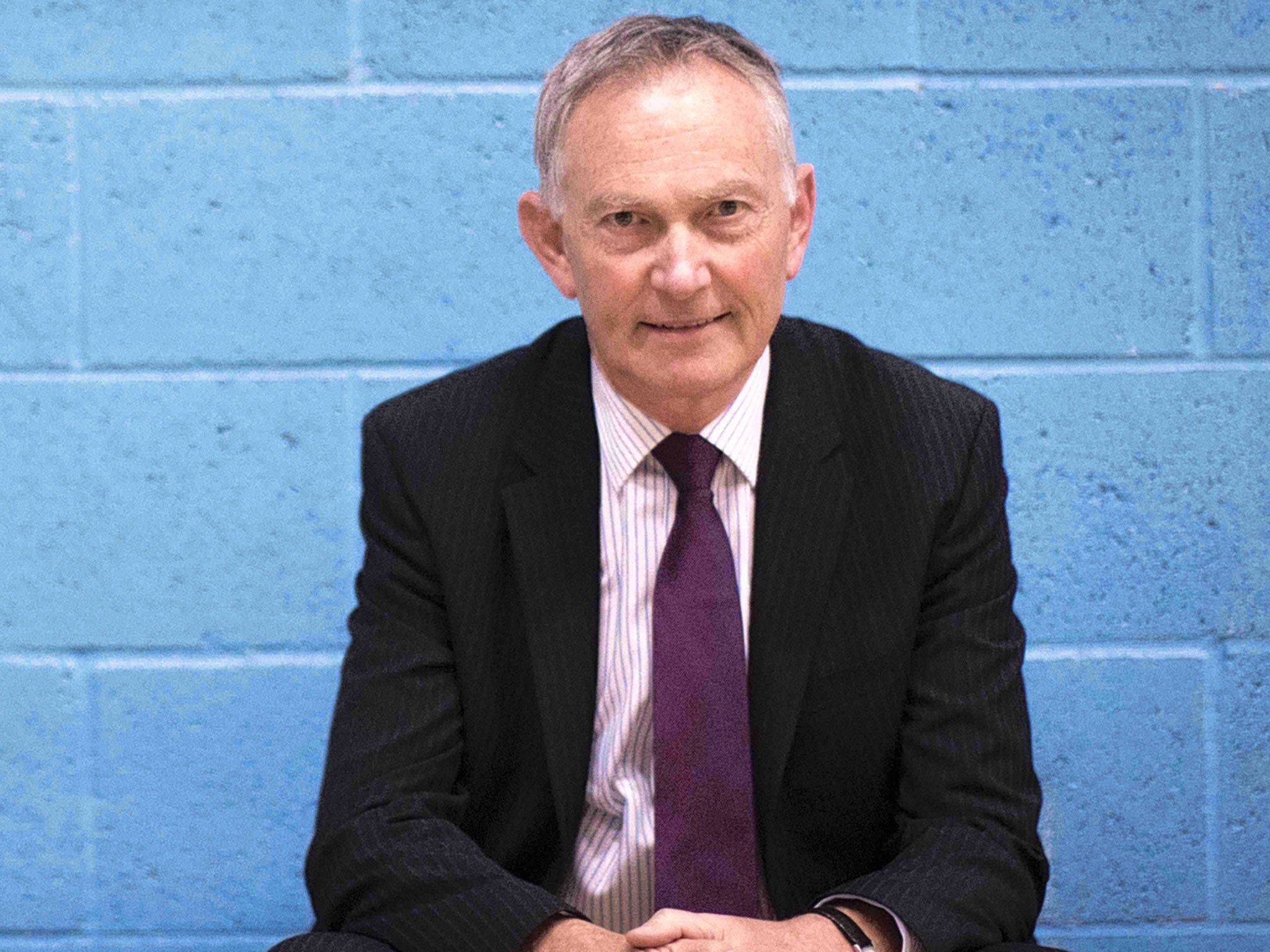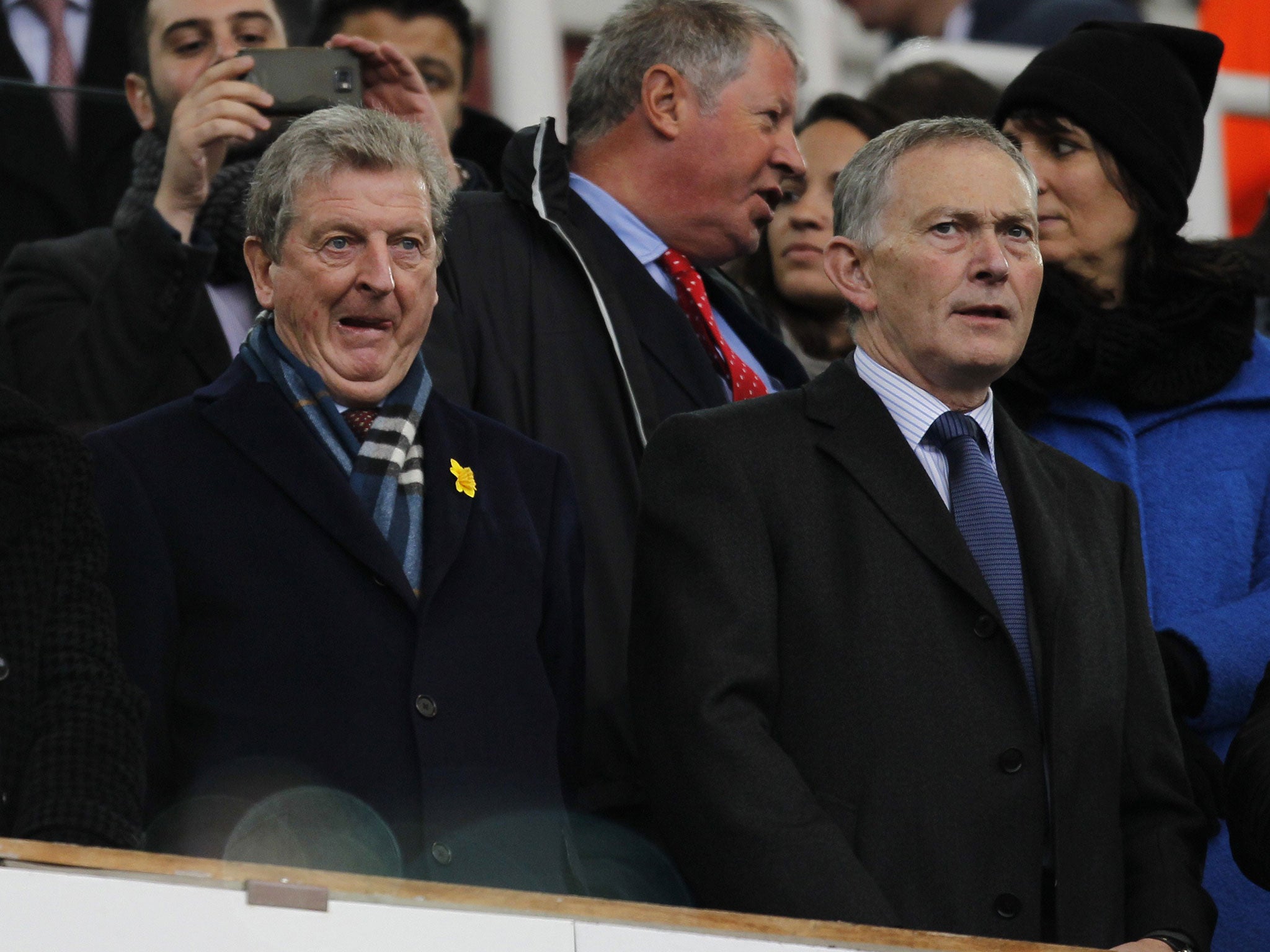Richard Scudamore interview: ‘What West Ham did is good... for West Ham’
The clubs are awash with TV money but Premier League supremo Richard Scudamore is not about to tell his members to cut their ticket prices

Your support helps us to tell the story
From reproductive rights to climate change to Big Tech, The Independent is on the ground when the story is developing. Whether it's investigating the financials of Elon Musk's pro-Trump PAC or producing our latest documentary, 'The A Word', which shines a light on the American women fighting for reproductive rights, we know how important it is to parse out the facts from the messaging.
At such a critical moment in US history, we need reporters on the ground. Your donation allows us to keep sending journalists to speak to both sides of the story.
The Independent is trusted by Americans across the entire political spectrum. And unlike many other quality news outlets, we choose not to lock Americans out of our reporting and analysis with paywalls. We believe quality journalism should be available to everyone, paid for by those who can afford it.
Your support makes all the difference.With some incredulity, the news was received that Richard Scudamore was delayed because his bus was running late. Bus? The man who made the Premier League billions – £5.136 billion in the latest round of TV rights negotiations. A presidential cavalcade with ticker tape might have been more expected. But, yes, his colleagues insisted. He was coming on the No 279 through North London. It was typical Richard, they said. "Low maintenance."
It’s a rare thing. A conversation about, arguably, the most powerful person in British sport which incorporates the word “low”. “Stratospheric” has been more prevalent in recent dispatches.
He arrived, unflustered, in a matter of minutes, to witness the work being undertaken in one of various community projects around the country supported by the Premier League. With the school gym in North London resounding to the gleeful shrieks of trampolining, footballing and basket-shooting teenagers, the scene embodied Scudamore’s avowed enthusiasm for football clubs “digging deep” into their communities.
Some of those communities this week will be alive with the news that West Ham became the first club to announce that they are reducing season-ticket prices as a result of the record TV deal. Will there be more clubs to follow and could this be thanks to image-savvy prodding from the Premier League?

“Actually, it’s neutral to me. Clubs are responsible for their own ticket pricing. We can’t possibly get involved in it centrally. The only thing we can get involved in is the Away Fans Initiative because we do think they are a protected and endangered species. They’re almost like orphans. Plus, they have travel costs. Therefore the Premier League has rules making sure they’re not charged more than the home fans.
“West Ham’s announcement this week, in one sense, is good but the absolute amount that West Ham are charging is for West Ham.”
In vain, you suggest that surely his influence extends to fixing his stern eye on club chairmen and persuading them to follow the London club’s lead, admittedly prompted by their move to the wide open spaces of the old Olympic Stadium.
“There’s no point looking Sunderland in the eye and talking about ticket pricing. They’ve got a huge range of affordable ticket prices. There’s no point looking Aston Villa in the eye, they’re trying their damnedest to get people through the turnstiles. The places not priced as affordably as some people say they should be is where they sell out every week.
“There’s 20 different circumstances. Therefore I commend West Ham for the fact they’ve stretched pricing policy but I have no view on absolute pricing. Push me all you like, but you won’t get your answer.”
If this sounds combative, it is offset by an understated charm, merry laughter and West Country burr. He once qualified as a Level 5 referee. You suspect his sendings-off would have been amiable, swift and uncontested.
He is not, for instance, visibly agonising over the recent contention of Greg Dyke, the FA chairman, that the Premier League is in danger of “having nothing to do with English people”, particularly with reference to regular appearances by English players. Scudamore has an answer to that: “Clubs will employ the best players they can find and I applaud them for it. End of story.”

So sod England? “No, the opposite. Absolutely the opposite. My second biggest passion after community stuff is youth development. Look at the money clubs are spending on development. We’re in the middle of a four-year programme spending £340m of central funding, plus the money the clubs are spending themselves. You’ve seen players coming through like Harry Kane. We’re seven per cent up on England-qualified players who have taken the field in the Premier League this year. It was seven per cent up last year. For two years now we’ve reversed the trend. This is the product of investment in youth. This is the only answer. It’s not protectionism.”
Certainty is his trademark. Is the Premier League inferior technically and tactically to La Liga and the Bundesliga? “No. It’s just played at a different pace. You try doing what players are asked to do at the speed they play [in the Premier League]. The pace and intensity makes it harder to look like you’re always in control. You can pass and control the ball brilliantly if you’re not always being harassed.
“Do we have all 20 of our clubs tactically and technically as good as Bayern or Real Madrid? No. But that’s not the test.”
His priority instead is “keeping grounds full and putting the best talent on the pitch. The second priority is making sure it is something people want to watch.”
But the reason he is here at the school, for a Premier League Kicks project run by the Tottenham Hotspur Foundation, is his avowed passion for the pulling power of sport in general, football in particular. “I’m not completely obsessed with sport but it has a power. It’s a very intoxicating thing to see young people who their teachers, parents, social workers, care workers, police – in some cases – struggle to engage. When you see the way sport engages them, you think, ‘Cripes, this isn’t all bad, is it?’”
He acknowledged, however, the hostility that the huge amounts of money swishing around the Premier League can engender. “We are in a school in North London and within 500 yards of here there are people struggling to make ends meet, struggling to bring up their children. Clearly we are a country where there is a polarisation of resources and wealth. Therefore you cannot expect to announce anything with a billion after it – let alone five – and not expect people to think, ‘Hold on a minute. There’s Haves and Have Nots here’.
“Which is why it’s very important a billion pounds is committed to be given away to help football outside the Premier League. We’re funding 161 clubs, including the Football League and the Conference. It’s an incredible industry. Thousands of people involved.”
The billion-pound investment was announced in March, covering grass roots, participation, fan engagement, support for disability groups, lower-leagues funding and parachute payments to relegated clubs.
Probably, you’d guess, Scudamore is one of the “Haves”. But the only outlay he confesses to is a modest one – the four Bristol City season tickets he shares among himself and his five children. “Besides sport, I’m besotted with my family. One of my daughters is running in the London Marathon this weekend and I’ll be there to cheer her on.”
The No 88 bus looks a likely candidate, but he would be wise to watch out for diversions.
Join our commenting forum
Join thought-provoking conversations, follow other Independent readers and see their replies
Comments